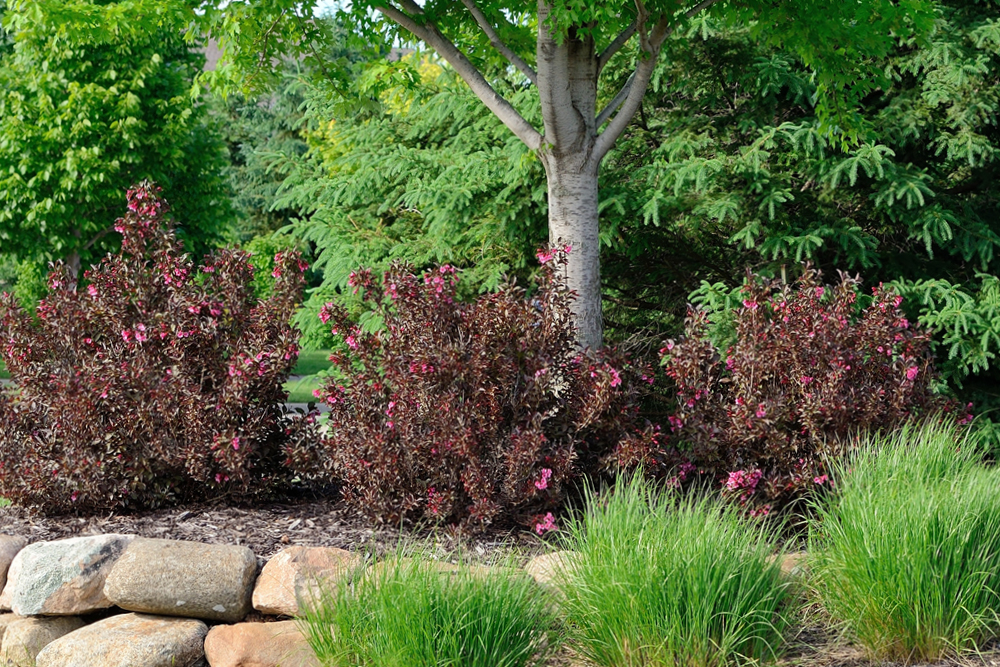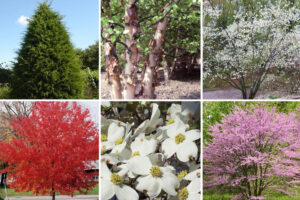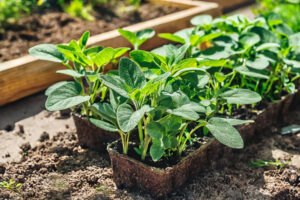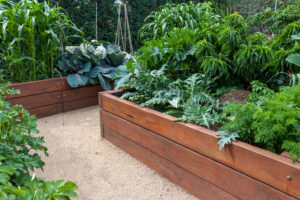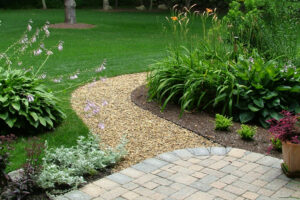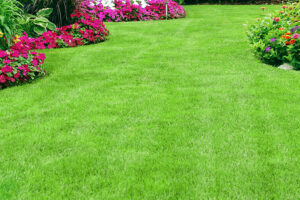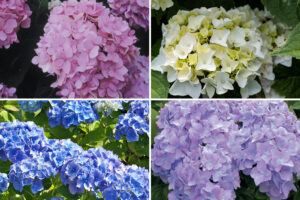The key to a thriving garden is understanding plant nourishment’s subtle art. As we need a balanced diet to flourish, so do our garden inhabitants. From the majestic trees to the delicate perennials, each requires a unique feeding regimen to ensure their growth and vitality throughout the seasons.
Feeding Tips for Trees, Shrubs, and Perennials
The rule of thumb for trees, shrubs, and perennials is to provide nourishment twice annually: once in spring to kickstart growth after winter’s dormancy and again in fall to prepare them for the colder months ahead. This feeding schedule supports their natural growth cycle and promotes robust health.
The frequency of feeding flowers and vegetables increases to once per month during the growing season. This regularity ensures that these more fleeting and often more demanding plants have a constant supply of nutrients to support their rapid growth and blooming cycles.
Application: The Salt and Pepper Method
When applying plant food, think of it as seasoning your favorite dish. Just as a bit of salt and pepper can enhance the flavor of a meal, a light sprinkling of plant food around the plant’s drip line can improve its growth. It’s crucial to avoid placing plant food too close to the stem—maintain a distance of at least 2-3 inches—to prevent any potential damage to the plant’s base.
If any plant food mistakenly lands on the leaves or stems, a gentle rinse is needed to wash it away. This prevents the concentration of nutrients in the foliage, which could lead to burning or damage.
Watering and Mulching: The Protective Duo
Once the plant food has been applied, water your garden thoroughly. Water helps break down the nutrients, allowing them to seep into the soil and reach the roots where needed. Following up with a layer of mulch is the gardener’s one-two punch for optimal plant health. Mulch conserves water, protects the plant roots from temperature extremes, and suppresses weed growth, all contributing to a more resilient garden.
The Espoma “Tone” Advantage
We recommend Espoma “Tone” plant foods for your plant-feeding needs. These products offer a suite of benefits:
- Natural Organics: Espoma “Tone” plant foods provide a rich and diverse plant diet with a complex blend of natural organics.
- Organic Gardening Approval: These products are approved for organic gardening, ensuring your garden is beautiful and environmentally responsible.
- Soil Structure Improvement: Beyond feeding your plants, Espoma “Tone” plant foods improve the very foundation of your garden—the soil.
- Slow-Release Nutrition: Long-lasting, slow-release feeding ensures that plants have a steady source of nutrients.
- Safety: The gentle formula is safe and won’t burn plants or leach away with watering.
- Ease of Use: Ready to use and mess-free, these plant foods are enhanced with Bio-tone Microbes to boost your plants’ growth.
Incorporating Espoma “Tone” plant food into your gardening routine is not merely a task—it’s a gesture of care that echoes through every leaf, stem, and blossom in your garden. By choosing Espoma “Tone” plant foods and following these feeding tips, you are setting the stage for a garden that not only survives but thrives with vibrant colors, fragrant blooms, and the lush greenery that becomes the backdrop for creating lifelong memories in your own slice of nature.

